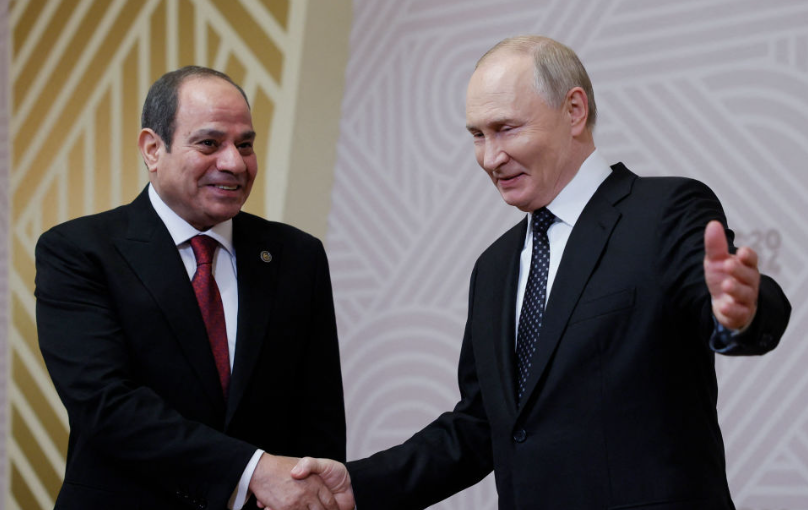Egypt’s foreign ministry welcomed Moscow’s call for direct negotiations with Ukraine, saying it could mark the start of a long-overdue shift toward peace in Europe.
Egypt’s foreign ministry doesn’t usually mince words in tense geopolitical moments, but Monday’s statement from Cairo stood out. With just three days to go before proposed direct talks between Russia and Ukraine, Egypt gave a rare, emphatic nod to Moscow’s diplomatic initiative, calling it “crucial” to a possible breakthrough.
This comes as both Kyiv and Moscow appear to edge—cautiously—toward dialogue, even as the battlefield remains active and deeply volatile.
A Surprising Voice of Encouragement from Cairo
Egypt’s endorsement wasn’t just symbolic. It signals something deeper: a recalibration in how countries outside Europe and the NATO bloc are watching the conflict evolve. And this time, Egypt isn’t staying quiet.
The foreign ministry said the proposal from Russia to hold direct talks with Ukraine on May 15 could help usher in “a new phase,” one that opens up space for addressing long-standing grievances and fresh wounds alike.
That’s no small thing coming from Cairo.
For years, Egypt has walked a diplomatic tightrope on issues involving major powers. But now, it’s making clear that continued war in Eastern Europe is a crisis too big—and too interconnected—to ignore.

A Quiet but Persistent Peacemaker
Egypt has played a quiet hand in this war. It hasn’t aligned openly with NATO or Russia. Instead, it has kept channels open across regions—Middle East, Africa, Europe.
The foreign ministry’s statement pointed out that Egypt has taken part in multiple peace initiatives over the past two years, including:
-
Arab League-led talks aimed at framing ceasefire terms
-
The African Union’s mediation channels
-
Informal backdoor discussions under the “Friends of Peace” umbrella
Each of these had varying levels of impact, but what’s consistent is Cairo’s presence. They may not be loud, but they’ve always been in the room.
And now, they’re urging everyone else to take this upcoming May 15 opportunity seriously.
What Russia Is Offering—and What Ukraine Wants
The idea of talks between Russia and Ukraine is not new. What’s different this time is the setup. Moscow has formally proposed direct negotiations—unfiltered, face-to-face—without the preconditions that have usually bogged down past attempts.
That, in itself, raised eyebrows. Analysts have pointed out that Russia might be trying to regain political leverage after months of military stalemate and international sanctions.
Kyiv, for its part, hasn’t dismissed the idea outright. Ukrainian officials say they’re open to hearing Moscow out, but they’re also skeptical—understandably so.
No one wants a repeat of past talks that collapsed within hours over issues like sovereignty, prisoner exchanges, or territorial claims.
Egypt’s Real Message: It’s About the Bigger Picture
Behind Egypt’s seemingly neutral tone lies a strong message: enough is enough.
The war in Ukraine isn’t just a problem for Europe. It’s creating ripple effects across energy markets, global food supplies, and refugee corridors—all of which directly affect Egypt.
Remember, Egypt is the world’s biggest wheat importer. Much of that wheat used to come from Ukraine and Russia. When war breaks out there, bread prices spike in Cairo.
So, when Egypt says peace is “crucial,” it’s not just reading from a diplomatic script. It’s advocating for economic survival.
What Comes Next? A Waiting Game Before May 15
Now, everyone’s watching May 15. It’s the proposed date for direct Russia-Ukraine talks. The venue hasn’t been confirmed. Neither side has detailed an agenda.
But the calendar’s marked, and so are expectations.
Here’s a look at the current diplomatic position of key countries on the proposal:
| Country | Position on May 15 Talks | Public Statement or Action Taken |
|---|---|---|
| Russia | Initiator | Proposed direct negotiations |
| Ukraine | Open but cautious | Acknowledged proposal |
| Egypt | Supportive | Called it “crucial” |
| Germany | Watching carefully | No official position yet |
| Turkey | Quietly supportive | Behind-the-scenes diplomacy |
| United States | Skeptical | Warns of strategic manipulation |
There’s still a lot of uncertainty. But at least, for once, both sides are considering a seat at the table.
Why Egypt’s Statement Matters More Than It Seems
It might look like just another foreign ministry statement, buried in the flood of daily diplomatic chatter. But Egypt’s words carry weight, especially in a region that often finds itself squeezed between East and West.
Egypt is trying to carve out a role as a sensible middle power—someone who can talk to everyone without being accused of bias.
And if this May 15 proposal gains traction, don’t be surprised if Egypt plays a bigger role behind the curtain—maybe even hosting talks or pushing quiet compromises.
